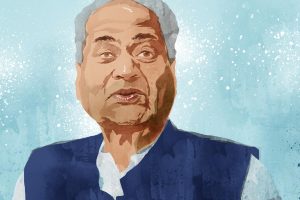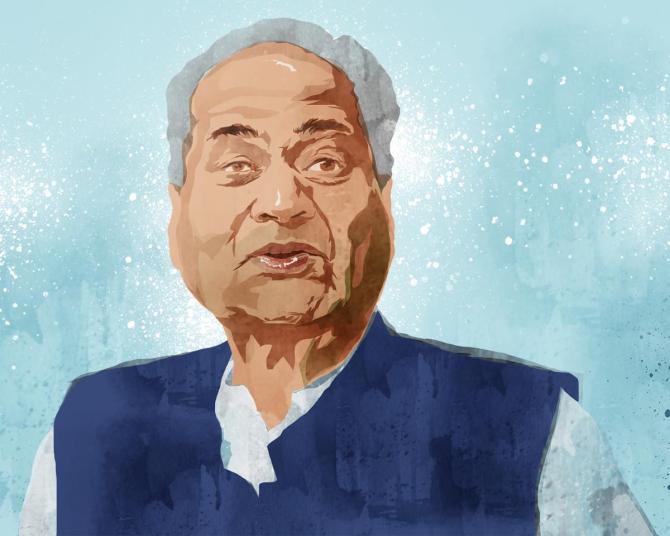Rahul Bajaj was a true nationalist

Rahul Bajaj was transparent, outspoken, and not ready to bend the rules, says R C Bhargava.
As marketing director in Maruti Suzuki (then called Maruti Udyog) in the early 1980s, I wrote to Rahul Bajaj, requesting him to intervene and get an “out of turn” allotment of coveted Bajaj scooters for our workers because the product had a long waiting-list.
Bajaj promptly responded but the answer was an emphatic “no”, saying “sorry, we cannot give any priority to Maruti”.
To me that was the quintessential Rahul Bajaj — transparent, outspoken, and not ready to bend the rules.
He was a true nationalist who believed in the “Make in India” story.
He might have been the most vocal member of the so-called “Bombay Club” in 1993, but in retrospect, what he was saying was right.
Then we were all pushing for reforms, fast-tracking decisions, etc. but probably I was a little wrong.
What Rahul was asking for was a “level playing field” for domestic industry so that it did not have its hands tied while competing with global players.
He was not against competition.
And that is the essence also of Prime Minister Narendra Modi’s “Aatmanirbhar Bharat” and “Make in India”.
Rahul was also talking of removing hurdles for domestic industry.
Our first interactions were in meetings at the Confederation of Indian Industry (CII).
We also went together to countries such as the US, the UK, and Russia.
The first time I went to Davos was with him and soon we became close friends.
He would call me and my wife for dinner at his house in Pune, where you were served the best Marwari food (I am a vegetarian and so was he. That was another reason for our hitting it off).
Our relationship strengthened because he was close to Naresh Chandra, who was my batchmate in the Indian Administrative Service, and the three of us would meet at the Taj Palace, where he would always stay in a suite when he was in Delhi.
However, with Covid-19 breaking out, our physical meetings stopped because he seldom moved out of Pune.
During the battle between the government and Suzuki on control, he supported our stand, but also asked why the Japanese should have so much in India and why domestic companies could not build things themselves.
He kept away from giving stakes in his company to foreign players.
So he did not move quickly to get four-stroke technology for two wheelers, which was more fuel-efficient (which only Honda had but it wanted equity and Bajaj refused though it had a technical collaboration, signed in 1986, with Kawasaki for two-stroke engines).
But that provided the Munjals of Hero, which tied up with Honda with equity participation, an opportunity to overtake Bajaj in terms of volumes.
But it was not a matter of having the right or wrong strategy for Rahul; it was a matter of belief.
But while he might have lost the top position in terms of market share, if you look at the financial ratios and profitability Bajaj has always been the best in the business.
And that is not a small achievement for Rahul.
He had public differences with his son Rajiv also.
The differences were on Rajiv’s strategy to stop the production of scooters and shift to mobikes.
Perhaps Rahul was right.
Mobikes were a craze but the market is going back to scooters and it is ideal to have a mix of both scooters and mobikes.
Ravindra Chandra Bhargava is chairman, Maruti Suzuki.
As told to Surajeet Das Gupta
Source: Read Full Article

